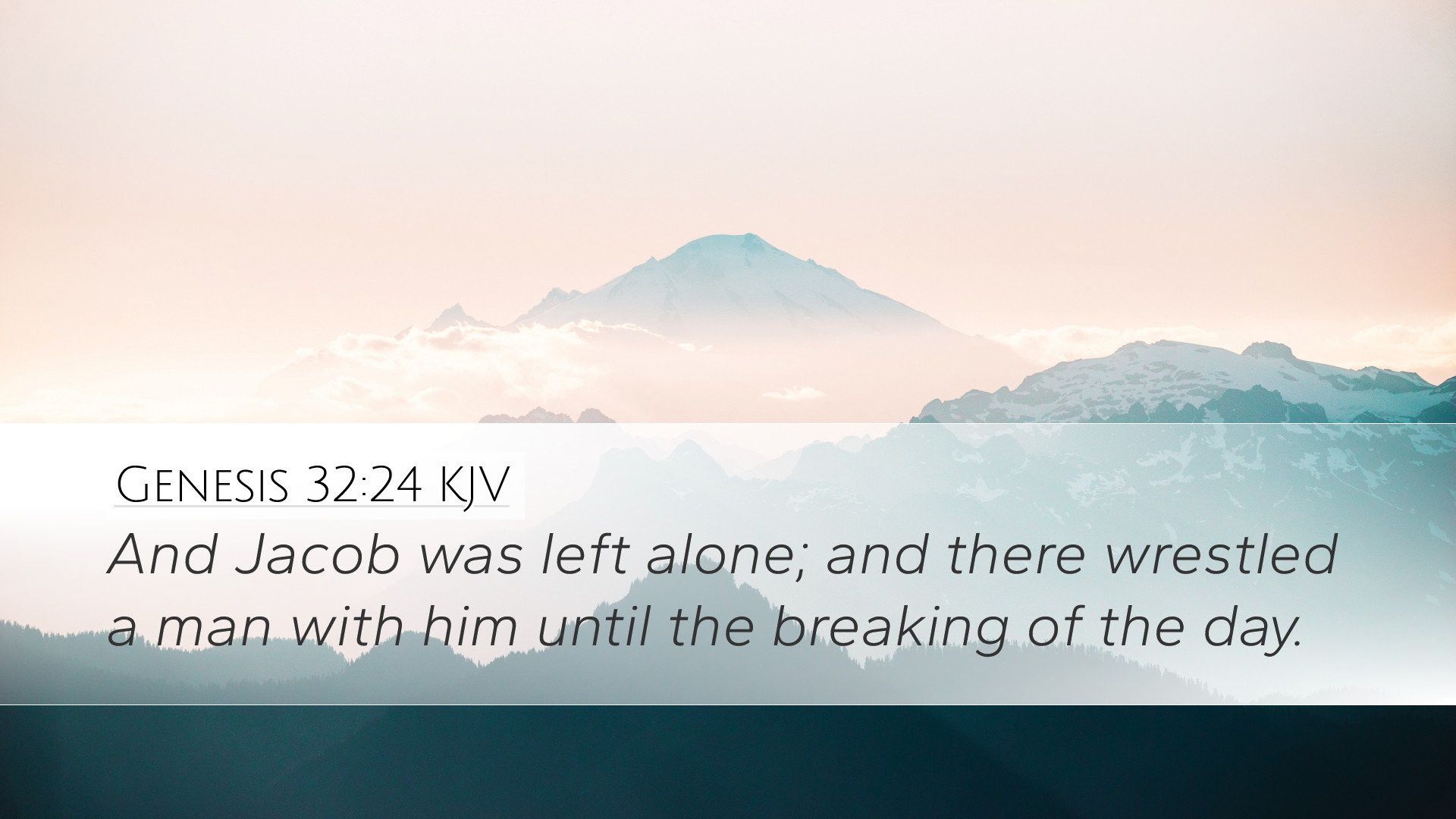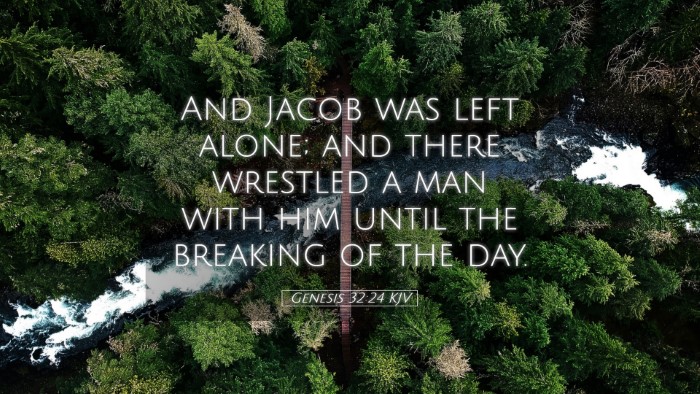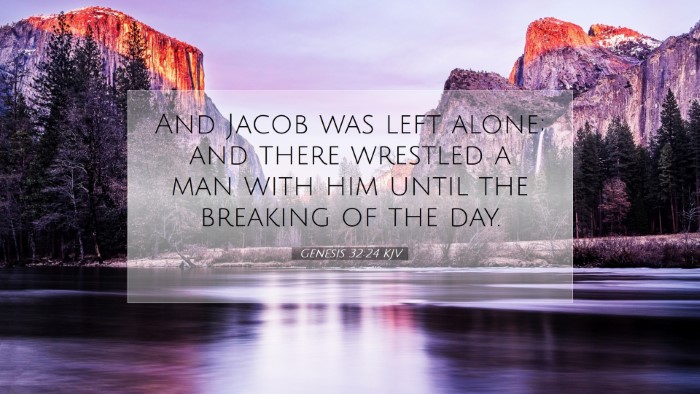Commentary on Genesis 32:24
Genesis 32:24 states: "And Jacob was left alone; and there wrestled a man with him until the breaking of the day." This pivotal moment is laden with profound theological significance, rich in symbolic meaning and practical application for believers and scholars alike.
Context and Background
The events leading up to this verse highlight Jacob's deepening struggle within himself as he prepares to meet his brother Esau. Years of estrangement weigh heavily on Jacob's mind and heart. The encounter at Peniel comes in the context of divine preparation for reconciliation.
Public Domain Insights
Matthew Henry
Matthew Henry emphasizes the desperation of Jacob's situation, illustrating that solitude often precedes divine encounters. Jacob's wrestling is seen as a metaphor for his inner turmoil, as he grapples not just with a figure in the night but with his fears, guilt, and the ramifications of past actions. Henry notes that the wrestling represents a struggle for blessing and transformation.
Albert Barnes
Albert Barnes comments on the significance of the timing of Jacob being "left alone." He argues that often, God meets people when they are isolating themselves in prayer and reflection. Barnes points out that the phrase "wrestled a man with him" could signify an angelic being, representing divine presence engaged in a profound struggle with Jacob, pushing him toward spiritual maturity.
Adam Clarke
Adam Clarke delves into the Hebrew terminology used in this verse, noting that the word for "wrestled" implies a grappling or a fighting in a way that connotes both physical and spiritual struggle. Clarke posits that this experience serves as an archetype for all believers who must confront their own struggles with God, their past, and the pathways of faith. He highlights the theme of transformation as Jacob ultimately receives a new identity through this encounter.
Theological Applications
- Struggle as Spiritual Growth: The act of wrestling signifies that spiritual growth often encompasses deep and personal struggle. Faith is not simply a state of peace but involves grappling with one's fears, doubts, and past sins.
- Isolation and Encounter: Jacob's solitude is crucial. It is often in our moments of isolation that God chooses to engage with us, calling us into deeper encounters that challenge us to transform.
- Identity and Blessing: The renaming of Jacob to Israel (which occurs later in this chapter) signifies a shift in identity. God’s blessings often come through our struggles and require us to embrace new identities in Christ.
Practical Reflections
For pastors and theologians, this passage serves as an invitation to explore how personal struggles can lead to deeper spiritual insights. It is essential to encourage congregants to embrace their wrestling matches, remaining aware that these struggles may be divine encounters in disguise.
Students of theology may find value in dissecting the narrative structure and the linguistic elements of the text, reflecting on how Hebrew poetry weaves together physical and spiritual themes.
Conclusion
Genesis 32:24 is a pivotal verse that captures the essence of transformation through struggle. The insights from Matthew Henry, Albert Barnes, and Adam Clarke collectively highlight that Jacob's wrestling match is not merely a historical account but a timeless narrative that speaks to the human condition—a reminder that in our struggles, we may encounter God and emerge changed.


